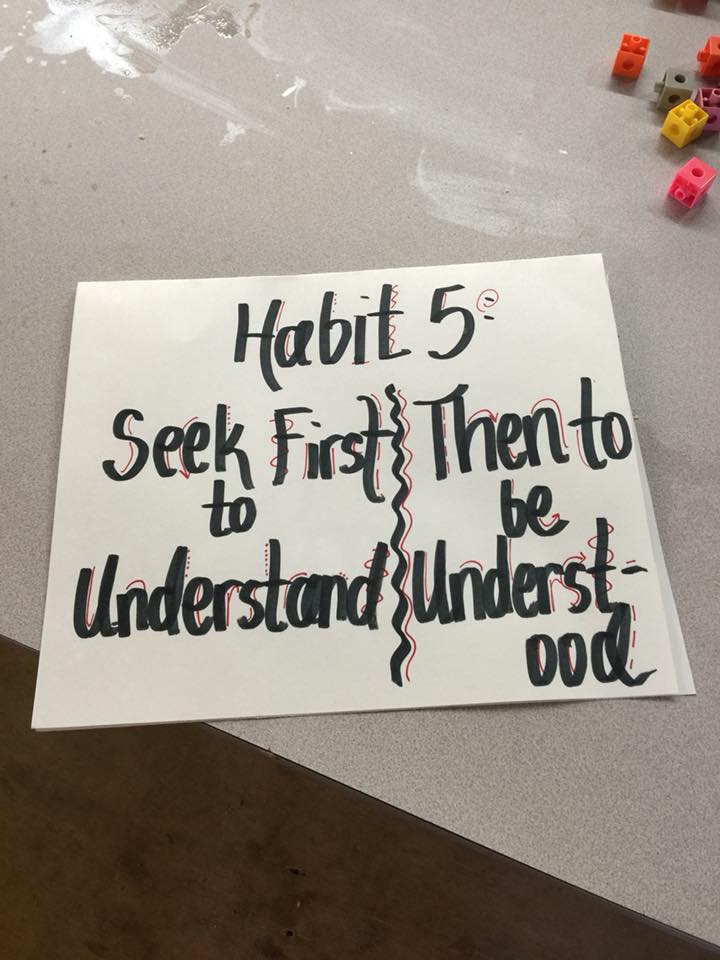Talk about a niche blog post!
I recognize that I am really narrowing my audience here, but I do think there is some value in sharing aloud (rather than just emailing the contents to our current middle school parents) our thought process around how we structure our parent-teacher conferences in our middle school. Part of the value is that some of the big ideas live beyond that narrow lens, impacting how we view parent-teacher conferences as a school and – more widely – how we view parent engagement and parent partnership. Part of the value – I hope – is that we get some feedback from our current parents and from other schools and school leaders that will positively impact our thinking. It can sometimes feel like you are blogging into the wind, but every now and again, I do get meaningful feedback from a blog post. Here’s hoping this is one of them!
Last year, in a blog post that was more focused on a new-and-improved report card format, we did introduce the following change to our middle school parent-teacher conferences:
With a large number of middle school students and a fair number of middle school teachers, we are going to try to provide a larger window of time with a more strategic number of mutually selected teachers. Instead of signing up for individual conversations with any or all teachers, we are going to be asking for parents to sign up for a 15-minute window and a request for one or two teachers they feel strongly need to be present. Then we will meet as a full middle school faculty and assign teachers to each middle school conference, using parental request and who we believe to be important in the conversations that should happen to best support each child.
I added the boldface above, because that sentence did not seem to be clear (enough) to many families last year and, thus, unintentionally became a source of tension. That is something I am hoping to avoid this year…
Let’s start with the observation that the entire model and structure of traditional parent-teacher conferences is likely obsolete. Why? Let’s count the reasons…
- Meaningful parent partnership requires frequent conversation. Two high-leverage, really brief engagement points do not lend themselves to relationship-building.
- If the mantra for parent-teacher conferences (and report cards) is “No surprises!” and we’ve done that work already (see above point), then what exactly are these brief encounters designed to accomplish?
- How much can you really discuss/show/ask/learn in such brief windows of time? With people running behind schedule, knocking on the doors, etc. – even if you are lucky enough to be having a meaningful moment of engagement, you will likely still wind up frustrated to have it truncated by an artificially imposed time limit.
So why do we still do them?
Well, despite their challenges, they do tend to succeed in bringing more parents into the school and into conversation with their children’s teachers. Brief conversations are better than no conversations. Some opportunity for relationship-building is better than no opportunity for relationship-building. So to the degree that they can and do lead to constructive conversations, it is worth continuing to try to improve upon them.
And that leads back to the changes we made last year for our middle school…
With our North Stars clarified and our culture evolving, we have an opportunity to revisit our programs and processes to be sure they are in alignment. The move to adjust our middle school conferences was designed to ensure that we would land with a format which would provide parents with meaningful and actionable feedback, and provide us with the same in terms of inviting valuable feedback from parents – all in the service of helping our students “own their learning” and that there be “a floor, but not a ceiling” for each student.
Because we view this as a partnership, we believe it is important that both parent and teacher voice contribute to the conversation, and to determining who sits around the table. Unlike the public board at the middle school and high school levels, we don’t believe a process which only honours parent choice serves our needs. As we said above, when it is time to decide who should sit around the parent-teacher conference table, we “meet as a full middle school faculty and assign teachers to each middle school conference, using parental request and who we believe to be important in the conversations that should happen to best support each child.”
Why? Why not just let parents decide who and how to spend their valuable, ever-so-short, window of time?
Well, it is the same reason we don’t do it in the Lower School. We believe that each part of our curriculum is important and that who your child is – how they behave, how they are feeling, their academic growth, etc., – across different teachers is valuable for parents to know. We don’t feel like you will have a full picture of your child and we don’t feel that we can get the feedback we need to serve your child, without having diverse representation. If we had more time, we’d have the full 7-9 teachers around a larger table. But we don’t. So we give parents and teachers an opportunity to build a smaller team to meet in partnership.
It is worth noting that any parent at any time can request any meeting with any teacher. It is not like this is your only opportunity to have 15 minutes with your child’s Math Teacher. Or French. Or Hebrew. But for one of two nights a year, it is a wonderful (even with its structural flaws) opportunity to come together as a team of people who care deeply about your child to share what is working, discuss what might not be, plan for what could be, strengthen our own relationships, and chart a course for a successful next term.
We are looking forward to a wonderful week of conferences. See you there!



